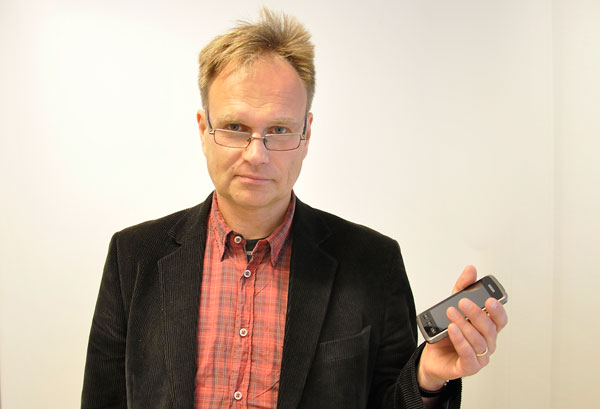By Nicklas Hägen
In Finland, there has been an engagement around Nokia that has occasionally been similar to the way people follow sports. The company has been a kind of national team of the business world, into which many Finns have made investments; not only economically but also emotionally, in the form of pride and interest.
Jan Svanberg, university lecturer in comparative religion at Åbo Akademi University, says that the loss of Nokia’s mobile phone arm to a foreign company like Microsoft leaves behind a powerful vacuum in the construction of what it means to be a Finn.
“You want to pin down the idea of what being Finnish means to certain symbols. Nokia has managed to make a name for itself in the world and has been part of that image of Finland which conforms to how we want it to look,” says Svanberg.
Svanberg has studied in which way the images of Finland and the Finns have been constructed in a future report, which was submitted to the then foreign minister Alexander Stubb in 2010. The commission’s task was about creating a vision of how a brand could be constructed around Finland. The previous CEO of Nokia, Jorma Ollila, acted as chairman.
When constructing the image of Finland in the report, closeness to nature is combined with the feature of high technology. It is said that the Finns are creative thanks to the contact we maintain with the savage in us. We get power from nature and pre-Christian traditions and thus we are able to think in an unconventional way.
“Through the sale of Nokia the self-construct which is built on high technology is weakened. At the same time it is interesting that we are not capable of letting go of the image of the Finn who digs deep into the bog. It has to be included. This has probably to do with our not being fully urban yet; it is from a Finland of the lakes that the Finns get their strength,” says Svanberg.
The Finnish background of the mobile phones makes the sale particularly sensitive, as the Finns do not have that many success stories in their business world to build a positive national self-image around.
The country has had big industries before, indeed, but much of what has built up the Finnish economy has been developed by foreign business men. The big textile industry which boomed in Tampere in the nineteenth century, for instance, had Scottish roots.
“It’s the same in Sweden, which was built by the Walloons to a great extent. That happened so far back in history, however, that there are no fresh historical memories of it,” says Svanberg.
“We are a relatively young nation that does not have a broad industrial base. When my generation grew up we talked about the forest as the green gold of Finland. Then came Nokia and occasionally the shipbuilding industry was also woven into the picture. We are a small country, however, and there are few innovations in circulation.”


